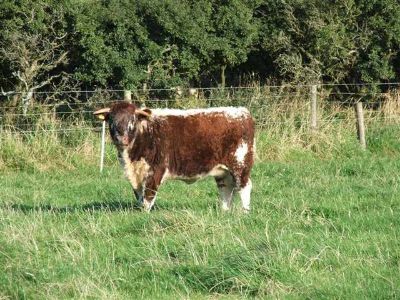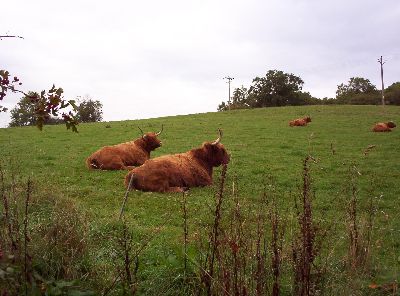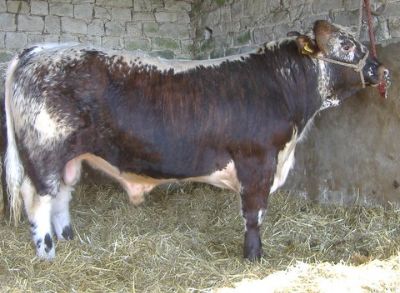 | ||||||||||
There are 2 types of cattle on the farm: English Longhorn and Highland Cattle. These represent an interesting pairing of traditional hardy native livestock and have been selected for their conservation characteristics and also the quality of their produce.
English Longhorn is renowned for its ease of calving and there is almost no recorded incidence of assistance being needed at birth. Longhorns have excellent milking ability and they rear their calves very well. They are excellent mothers and their docile nature makes them an easy breed to manage. Their exceptional breeding longevity and relatively low body weight makes them very economical and inexpensive to feed. For more information, have a look at the Longhorn Cattle Society web-site.
Highland Cattle thrive and breed where no other cattle could exist, making the most of poor forage, calving outside and seldom, if ever, housed they make a real economic contribution to hill and upland areas.The breed is exceptionally hardy with a natural and unique ability to convert poor grazing efficiently. They are remarkable for their longevity: many Highland cows continue to breed to ages in excess of eighteen years having borne fifteen calves and they are good mothers. For more information, have a look at the Highland Cattle Society web-site.
| ||||||||||

 The English Longhorn is an ancient and beautiful breed, which came close to extinction in the middle years of the last century but have since proved themselves to have a valuable role to play in the production of quality, healthy beef from grass. They are not related to the American or Texas Longhorn whose ancestors came from Spain. English Longhorns are large lean beef cattle with an impressive sweep of horns. A strikingly attractive breed, the body may be any one of a wide range of brindle colours but they all have the characteristic white line along the back and down the tail and the impressive horns are valued in the pedigree.
The English Longhorn is an ancient and beautiful breed, which came close to extinction in the middle years of the last century but have since proved themselves to have a valuable role to play in the production of quality, healthy beef from grass. They are not related to the American or Texas Longhorn whose ancestors came from Spain. English Longhorns are large lean beef cattle with an impressive sweep of horns. A strikingly attractive breed, the body may be any one of a wide range of brindle colours but they all have the characteristic white line along the back and down the tail and the impressive horns are valued in the pedigree. The Highland breed of cattle has a long and distinguished ancestry, not only in its homeland of western Scotland, but also in many far-flung parts of the world. One of Britain's oldest, most distinctive, and best known breeds, with a long, thick, flowing coat of rich hair and majestic sweeping horns, the Highlander has remained largely unchanged over the centuries. Written records go back to the 18th century and the Highland Cattle Herd Book, first published in 1885, lists pedigrees since that time.
The Highland breed of cattle has a long and distinguished ancestry, not only in its homeland of western Scotland, but also in many far-flung parts of the world. One of Britain's oldest, most distinctive, and best known breeds, with a long, thick, flowing coat of rich hair and majestic sweeping horns, the Highlander has remained largely unchanged over the centuries. Written records go back to the 18th century and the Highland Cattle Herd Book, first published in 1885, lists pedigrees since that time.  The pride of Bittlesea Farm is our English Longhorn bull, Gorse Nimrod.
The pride of Bittlesea Farm is our English Longhorn bull, Gorse Nimrod.